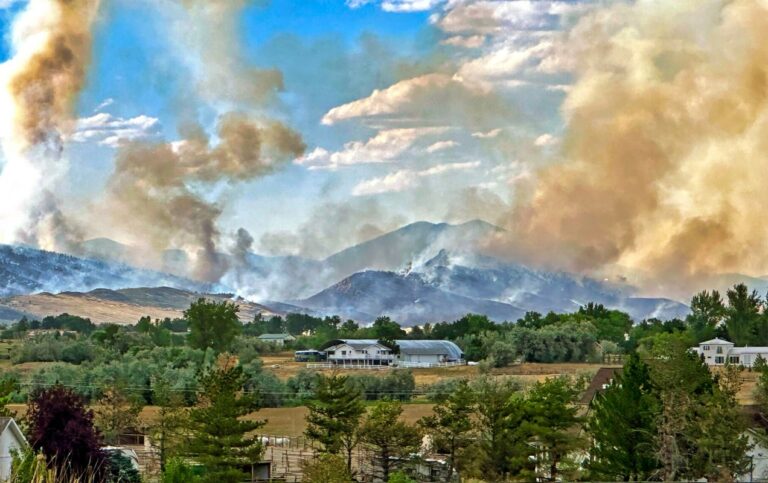Data from the National Interagency Fire Center indicates a rise in wildfire-burned areas in the U.S. since the 1980s, according to the U.S. Environmental Protection Agency. As extreme weather events, largely driven by human activity, escalate wildfire damage, insurance companies are facing significant financial losses, leading to coverage cancellations, as seen in Boulder, Colorado.
Why Boulder Residents Are Losing Coverage
Several factors contribute to this trend. Some Boulder residents have had their insurance coverage dropped due to living in high-wildfire-risk zones. Others are experiencing doubled premiums, making it difficult to afford to remain in the area. Additionally, some homeowners with high-value properties (over $1 million) are finding that their properties fall outside the scope of their insurance company’s policies.
One such resident, Kristina Miller Olsen, owns a property valued at $3.5 million, according to Zillow. After being dropped by her previous insurer, Nationwide, due to her high-value property, Olsen secured new coverage with State Farm. However, her premium jumped from $4,510 to $11,947. Olsen expressed her concern to Boulder Reporting Lab, stating that losing her house without full insurance coverage would impact her retirement savings.
Rising home insurance costs are a nationwide issue, affecting homeowners in states like North Carolina, California, Florida, and Louisiana.
The Bigger Picture: Climate Change and Insurance
If climate data is any indication, rising global temperatures caused by human activity, including burning fossil fuels, will likely lead to more frequent and severe wildfires and other extreme weather events. This increased wildfire risk forces insurance companies to re-evaluate their coverage in high-risk areas.
Homeowners who lose coverage or cannot afford premiums risk losing their homes to fire or displacement. Olsen highlighted the issue to Boulder Reporting Lab, saying, “The ability to afford where we live is decreasing rapidly.”
Colorado’s Response
Colorado lawmakers are actively seeking solutions to help homeowners. To help lower wildfire risk and appeal to insurance companies, the proposed HB 1182 bill would require insurers to consider homeowners’ wildfire mitigation efforts when determining premiums. The state is also establishing a Fair Access to Insurance Requirements (FAIR) Plan, a last-resort coverage option (up to $750,000) for high-risk property owners. The costs of coverage will be shared among major insurers in order to support Colorado homeowners while recognizing the financial burden on the insurance companies.



